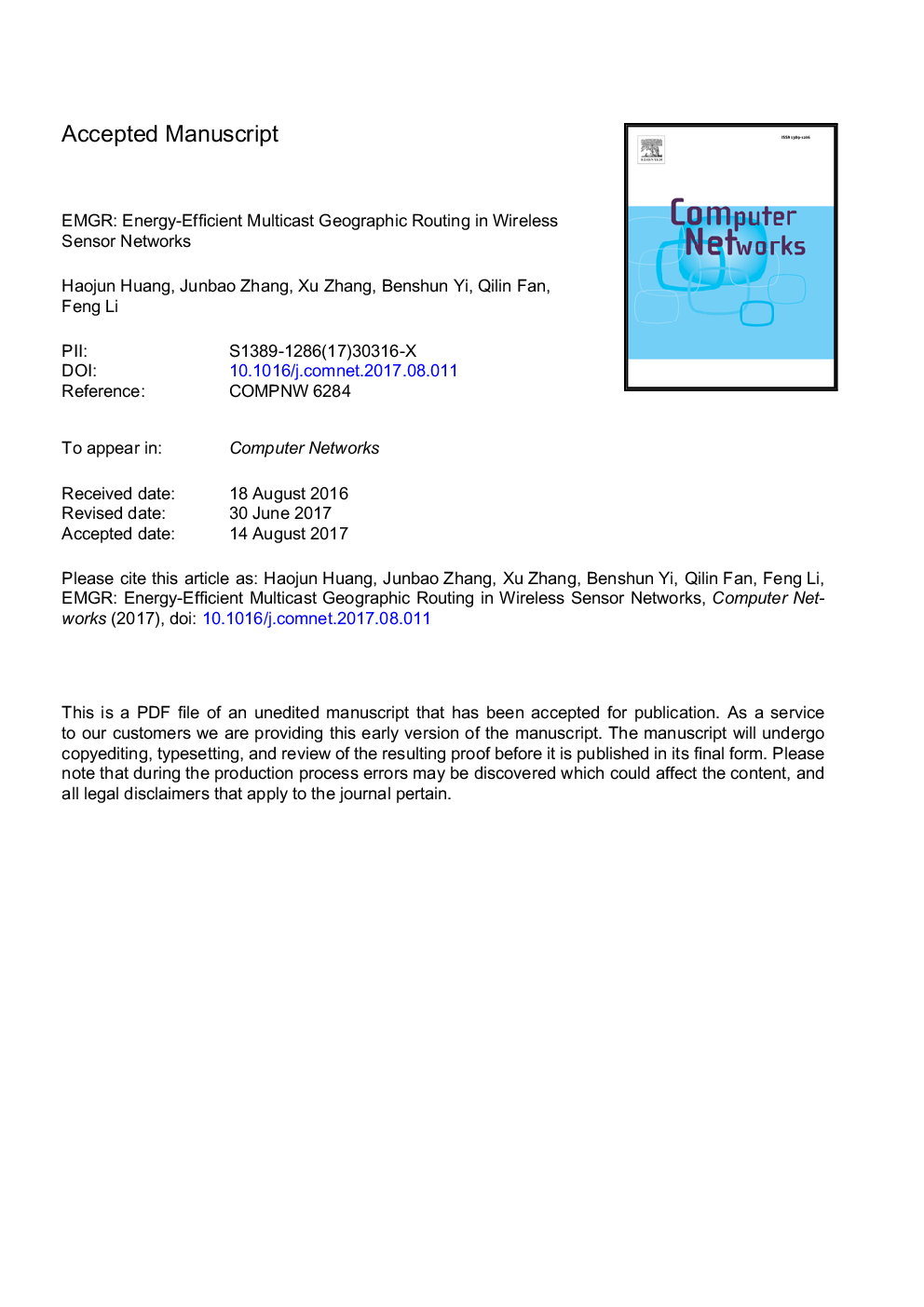| Article ID | Journal | Published Year | Pages | File Type |
|---|---|---|---|---|
| 4954565 | Computer Networks | 2017 | 16 Pages |
Abstract
It is a quite common case for Wireless Sensor Networks (WSNs) in most application scenarios, that the same message needs to be sent to multiple destinations from a single sensor node. These applications can benefit from the use of multicast communications to conserve resource. Multicast geographic routing has recently been proposed as an efficient and scalable approach to fulfill this requirement by exploiting the location information of nodes instead of the global topology information to route multicast messages. As the sensor nodes are often powered by batteries and recharging them is infeasible, energy-efficient routing plays an important role towards the success of WSNs. In this paper, we address this challenging issue of WSNs and propose an energy-efficient multicast geographic routing protocol (EMGR) to achieve this goal. EMGR employs an energy-aware multicast tree, formed by the set of destinations and the source node based on the metric of energy over advance, to guide multicast message delivery and adaptively select the nodes closest to the energy-optimal relay location as the next forwarders for energy conservation. Analytic and simulation results demonstrate that our proposed protocol achieves the improved performance in terms of low energy consumption, control overhead, computational complexity, and high packet delivery ratio, compared to the existing protocols.
Related Topics
Physical Sciences and Engineering
Computer Science
Computer Networks and Communications
Authors
Haojun Huang, Junbao Zhang, Xu Zhang, Benshun Yi, Qilin Fan, Feng Li,
